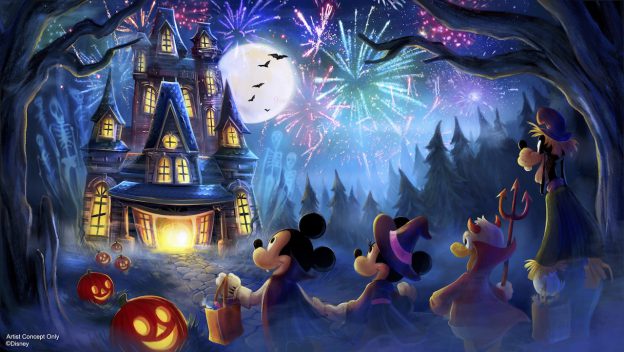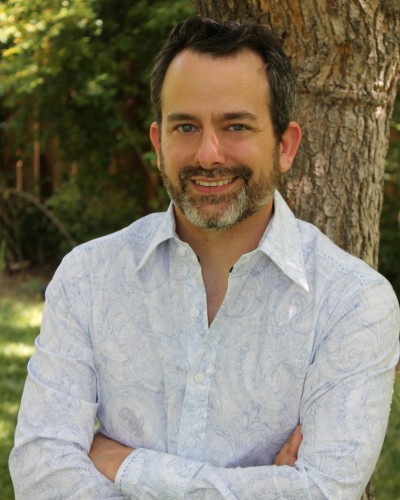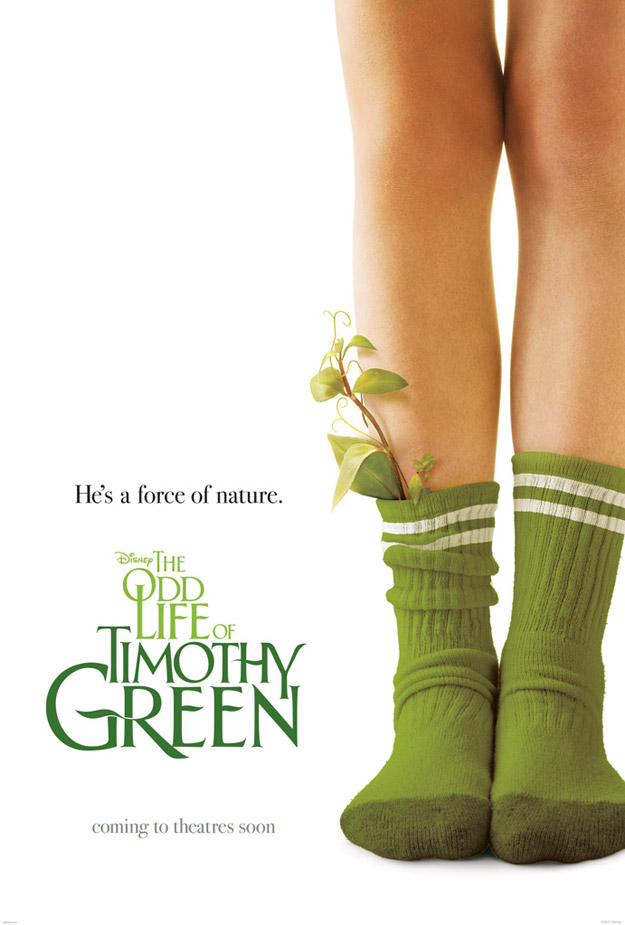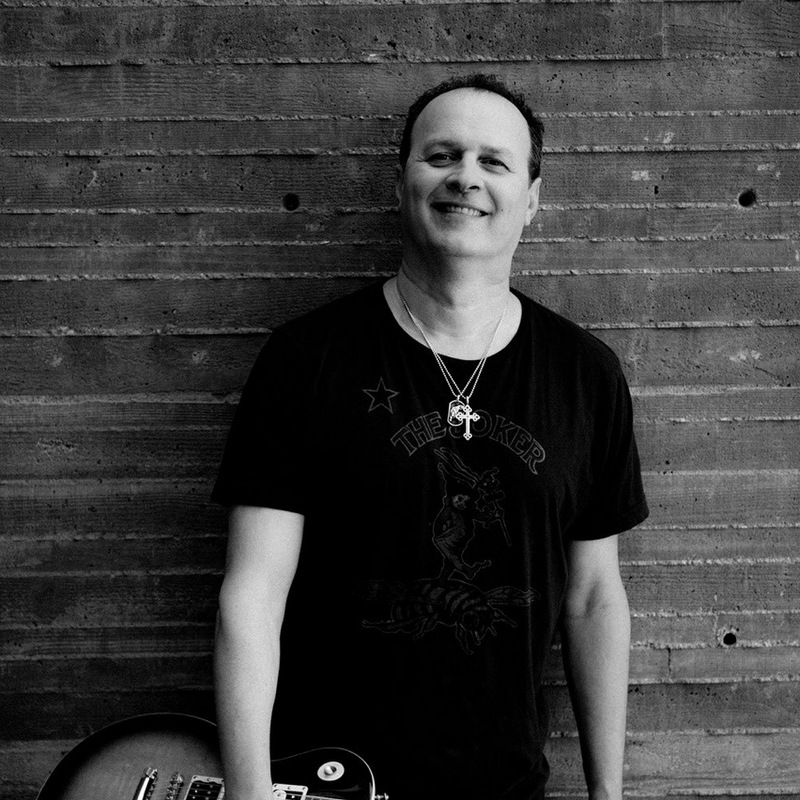“This is a movie about what children can teach you if you let them.” – Director Peter Hedges
I recently sat down to chat with Geoff Zanelli, composer for the upcoming Disney film, The Odd Life of Timothy Green, to learn more about how he came up with the movie’s score. And in the span of a half hour, and a few questions, I became a fan. Because the statement above doesn’t simply reflect the film; it conveys the heart of the composer as well.
Zanelli has worked with some of the biggest names in film music, from Hans Zimmer to John Powell and beyond. His list of credits includes some of the highest grossing films of all time, but I wasn’t prepared for how touching the story of this particular film would be, and how personally it touched its composer.
Let’s get right into the interview, with my questions, followed by Geoff’s gracious answers.
DZ: It’s a pleasure to speak to you and and if I’m a little starstruck, I was going through some of the projects that you’ve worked on, and it’s really kind of an honor to talk to you.
GZ: Thank you. I appreciate that.
DZ: In reading about your career, I learned you were recognized for your natural talent early on, at 19 or 20, by Hans Zimmer, and then moved to work with him for a number of years. How did that opportunity really mold your style?
GZ: I think you have to look at Hans as one of my main mentors, and that was a huge thing. I was actually a little bit of a late bloomer as a musician. I didn’t really play an instrument until I was a sophomore in high school. So by the time I went off to college, I was a three-year old musician, in a sea of guys who had been playing since they were three. So I was behind in terms of technique, but obviously I had some kind of raw affinity for what it takes to be a composer, and what ended up happening, is, I grew up in Southern California, but not in Los Angeles. I didn’t know anyone in the entertainment business so I just started knocking on doors (laughs.) And when I was in college, and I (obviously) wanted to come out and start working in film music and I just started trying to get in touch with anyone I could. And just by chance, through the receptionist here at Hans’ studio, I got a chance to meet him, and intern [at his studio.] Of course, interning meant that I got coffee and lunch for people. But I got to be around, and that was the reward on the other side of it. I had never gotten to be in a professional studio before, and I just didn’t let them let me leave (laughs.)
I just kinda became a fixture in the studio, because I was a nice guy and people like having me around, and I was handy and willing to do anything, but pretty soon, Hans’ studio was about to expand and a guy named John Powell was about to move in, I ended up getting a job with him as an assistant, and that was my first full time job. So I was getting some great exposure right there to two fantastic composers, to be in a room when Jeffrey Katzenberg is talking about the music for The Lion King with Hans, and here I am, setting down a cup of coffee and walking out of the room as slowly as I can so I can hear just one more sentence come out of someone’s mouth. And that was my education. That was the whole point of it. So eventually, that just led to some more direct working. Hans became aware of who I was as a musician, not just as a guy. He heard the music I was working on with John. I think it was around 1999 when he offered me a writing room. I had been at his studio since 1994 as an intern and assistant, and then he said, “Why don’t you take this writing room, and we’ll work on Hannibal together.” And that was my first job with Hans.
DZ: I mean, it kind smacks of the Great American Dream. That you would seize on that opportunity to learn on the job, versus getting out of college and expecting a job to be handed to you.
 GZ: Yes, and it’s interesting that our culture has very much shifted towards what you’re talking about. But I know what you’re saying. I definitely came up as a guy who worked his way into it. Like I said, I had not a single contact in show business. I had to forge those connections. I had to build them by knocking on doors, and taking those little opportunities, and turning them into slightly bigger opportunities. I never had that one big break, just a hundred small, incremental breaks.
GZ: Yes, and it’s interesting that our culture has very much shifted towards what you’re talking about. But I know what you’re saying. I definitely came up as a guy who worked his way into it. Like I said, I had not a single contact in show business. I had to forge those connections. I had to build them by knocking on doors, and taking those little opportunities, and turning them into slightly bigger opportunities. I never had that one big break, just a hundred small, incremental breaks.
DZ: It’s a fascinating story. I’m glad you went into that much detail, because the bare bones doesn’t begin to tell it. Even five years of staying put with one job…people lose focus today and don’t want to stick with it. If something doesn’t happen right away, they’re off to the next thing.
GZ: No, I wasn’t like that at all. I was just…you know, I was just happy they let me in (laughs.) It’s as simple as that. I was seeing the great musicians I liked listening to before I ever met them. I was seeing great filmmakers and producers and editors, people I looked up to, coming in and out of the building all the time…you know, it was just really inspiring.
DZ: It sounds fascinating, and it kind of leads to my next question. I read that you have a reputation for “consistent quality and boundless energy.” I’m thinkin’ that’s pretty accurate, and that’s a pretty good combination of qualities for a film composer. Would you agree with that?
GZ: Absolutely. I think that it really started when I went off to college, when all the other musicians were ahead of me in terms of experience, I always felt that the only thing I could do to compete is to just outwork them. I think that’s why I get along so well with Hans Zimmer or John Powell. They don’t go home at 7 o’clock. Sometimes, they don’t go home at midnight. You just have to work really hard at it, and I’ve always been kind of a workhorse. And that also means that I have to have a huge amount of energy to keep that up. I’d say a lot of my energy goes into my music. You can probably tell. I’m very passionate about it.
DZ: We talked a little about the fact that you came to composing as a guitarist. While I don’t know a ton, it does seem to me that a lot of composers are pianists. How has being a guitarist influenced you as a composer? It also sounds like composing was your career track from the get go.
GZ: Well, yes. Let me speak to your second question first. It was something I realized early on, I think. I play guitar, which means I had a band in high school, right? I mean, it wasn’t a good one (laughs.) What occurred to me really early on, though was, that, if this thing works out, and I’m in a band, and it goes perfectly, then I’m gonna play my hit song twice a week for the next forty years. There are very few bands that get to evolve, or even if they do, they still have to play those songs. I mean, U2 still has to play “Sunday Bloody Sunday” at every gig.
DZ: (Laughs) Right.
GZ: So for me, it wasn’t about learning new ways to play an old song, but rather finding a new song. So I thought, what better way to do it, than film music? Because if you do four or five movies a year, you get to wear five different hats! For instance, I did the fourth Pirates movie [Pirates of the Caribbean: On Stranger Tides] and then hopped right onto The Odd Life of Timothy Green, and these are very different movies. Before Pirates was a thriller called Beneath the Darkness. So that’s really exciting to me, to get to change gears a bit. It was a decision for me, even before I went off to college. I knew I wanted to be a composer for films, so that I’d get to explore new music all the time. And the other thing is, I don’t know that I’d be so good on the road, either. It didn’t sound so exciting to me, although I know that a lot of people really enjoy it.
As for the guitar, it’s actually particular to The Odd Life of Timothy Green that I’m a guitarist. On most of the projects that I do, I do write from the piano..although that definitely doesn’t make me a pianist, just a composer hunched over a piano (laughs.) But, as a guitar player, it was a huge thing for Timothy Green, because in the earliest conversations with the director, Peter Hedges, we talked about what we could do to make the score feel organic, and real, and live. So we committed early on to an acoustic score, and that we would use as many live instruments as possible. And then I started to get enamored of the idea of using instruments where you could not only hear the instrument, but the musician as well. So I liked the guitar, because you could hear the fingernail right up against the string. And I liked the cello because you could hear [the musician] breathe. There’s no way not to get that into the recording. You know, it’s part of their language. During the writing process, I was playing all the guitars, and some of that actually ended up in the score, I’d say maybe a third of the guitars were me. That’s why it was particularly helpful on this movie.
It was part of the fabric of score that we could hear the sounds of the player too, if that makes sense.
DZ: It absolutely does. I kind of reminds me of some of my favorite acoustic recordings, and they’re my favorites because you can hear the squeaking on the frets, and hear the breath. It makes it more real. Is that sort of the feel that you were going for here?
GZ: Absolutely. And not just with the guitarists. I mean, at 2 in the morning, we were moving the microphones a centimeter this way or that to get the most flattering blend of the note and the squeaking of the fret, like you were saying. I really did want to capture the human element and I wasn’t afraid of it. I think many times these days we often sterilize our recordings and take that out. In fact, it’s probably more common that you do that than not do that. So it was pretty invigorating to get in there and say, “No, this is how we do it, warts and all.” Because that’s really what the story is about. It’s about salt-of-the-earth people. And it’s how we cast the orchestra, which is only made up of about eight musicians most of the time. I was handpicking musicians so you could hear the individual voice, their music, their style poking through. I didn’t want a massive orchestra where the sound gets homogenized.
DZ: It kinda sounds like the only thing you could have done more is to record in the middle of the night in the field, when Timothy pops out of the box (laughs.)
GZ: (Laughs.) No, that’s about the only thing that we didn’t explore. But we were definitely dedicated to getting individual voices, right down to the singers.
DZ: In hearing you talk about so passionately, and watching the trailers, it really makes me interested to go see the film.
GZ: It’s a beautiful movie.
DZ: In one interview, I was really surprised to see that passion you had for this particular project. I assumed going into the research that this was just a corporate project, and would just be a gig that you had, with no real emotional connection. But I don’t get that sense, reading about it and talking to you. What touched you about it? What made you want to do this project?
GZ: If you were to look at who might score a film like this, you probably wouldn’t think about the guy who scored Disturbia or worked on [the] Pirates [films, all part of Zanelli’s credits.] (Laughs.) It’s not really in line with the rest of my credits. But after Pirates, Disney was keenly aware that I was the number two guy on those films, and they sent me the script. They said, “This is what we’re working on next, and if you want to write some music, we’ll see if it will work.” So I read it, and the instant connection for me was fatherhood. It sounds kinda weird, but it was like the stars kind of aligned. I was the father of a one-and-a-half year old at the time, and here was a movie about what my life was like right at that moment. I’m a very new parent, and it’s so fresh and invigorating to be a dad. That was the core inspiration for the score. My thought was, what is the world like for my little daughter? Every time she sees something new her eyes light up. How good it feels to watch them experience the world. It’s indescribable. I’m not convinced I could’ve written the score if I hadn’t been a father. I don’t think I would have been the right guy.
So on the one hand, I can see why you’d think it’s a big corporate movie, but it transcends that, and it does that because of the director/writer, Peter Hedges. He’s not your standard Hollywood director. He’s closer to Mark Twain. He’s very heartfelt, genuine. Every word that he writes or goes into the script, he means it. And he needed to find a composer who felt the same way about his music.
DZ: Oh wow! Now you make make me want to check out Peter Hedges movies in general!
GZ: Definitely! Check out Dan in Real Life, and also What’s Eating Gilbert Grape, based upon his novel of the same name. He’s a lovely guy.
DZ: Tell him he has a new fan.
GZ: I will! He’s a genuine guy. You’ll really feel it in the movie. There are real dangers when you make a movie like this that it doesn’t across as genuine. But I’m saying it does because of Peter.
DZ: I have to put a plug in for Jennifer Garner too, since I’m a fellow West Virginian.
GZ: And she’s fantastic! You know, movies can live or die by one bad casting decision, and there just isn’t one here. The cast is so great.
DZ: Talking about your other work, we’ve discussed Pirates a little and I also saw among your other credits Pearl Harbor. I mention these two, because when I think of the films, I can see scenes, and actually recall the score playing in the background, big as life. Do you like to make music that’s memorable on its own, or is it more about being part of the whole package [of the film]?
GZ: I think there’s a way to do both, and on the best days, I think that’s what a great composer is doing. When you think of a score like Forrest Gump, the score is so integrated into the film, it’s like another character, but it’s not obtrusive. It doesn’t make the movie about the music, but the music does stand on its own. So too, I hope, does the music for Pirates and Pearl Harbor. I think they do. I hope you find the same with The Odd Life of Timothy Green. And I do like that, when you can come away from the movie and listen to the music, and still stand up as music. I think it’s crucial. In fact, I tend to write music away from the time contraints of the film editing. I just write music about Timothy Green, and then go back and make it fit the film.
That’s how I got onto Peter Hedges’ radar; I wrote music from the script without seeing a frame. And he called and said, “You know, you’re onto something here. Let’s get together and I’ll show you the movie.” And it was great. That’s the way it oughta go.
DZ: You said that your journey as a parent uniquely prepared you for scoring this film. Is there anything you’d like to add?
GZ: Like I said, I don’t think I could’ve done it if it weren’t for my daughter. But interestingly, it’s been the first score that I’ve worked on that she’s really latched onto. She hears my work while I’m sitting at the piano or bringing it home on a CD or something. But it’s the first thing that she’s sorta gravitated toward. I like that it’s something that resonates with her as well, because it kinda came from her in a way. She certainly had a huge hand in inspiring it. It’s nice to have a fan in your own family. I can play the first three notes of the score and she runs over and says, “That’s Timothy Green.”
DZ: Oh, that’s awesome!
GZ: It’s really pretty cool. She has an affinity for music already, but she seems to in particular like these tunes. I think it was Kurt Vonnegut who said, “Every author writes for an audience of one.” So, maybe she’s my audience for this movie. I love the point though. You’re not going to write something that everyone in the world is gonna like, so you need to aim it at one or be inspired by one. That’s what I mean by the stars aligning.
DZ: So you were really writing it from the heart of a dad.
GZ: There you go. Exactly.
DZ: So what I’m excited about is seeing this movie! And I think our readers will be, too. I think there’s such a beauty out of love that I’m seeing, and it transcends the story. I was thinking while watching the trailer of the heartbreak of this couple who couldn’t conceive, and your heart just goes out to them.
GZ: Yes, in an instant. This movie is sort of perfect for people who’ve had to go through that struggle. It’s a movie that will resonate with a whole bunch of people. But in particular if you can relate to that…it’s an important movie for someone, I think.
Many thanks to Geoff Zanelli for spending a half hour with DisZine and answering all of my fan girl questions! To learn more about Geoff , visit his website. The Odd Life of Timothy Green opens in theatres on August 15, and the soundtrack is available August 14 via Amazon and iTunes.








